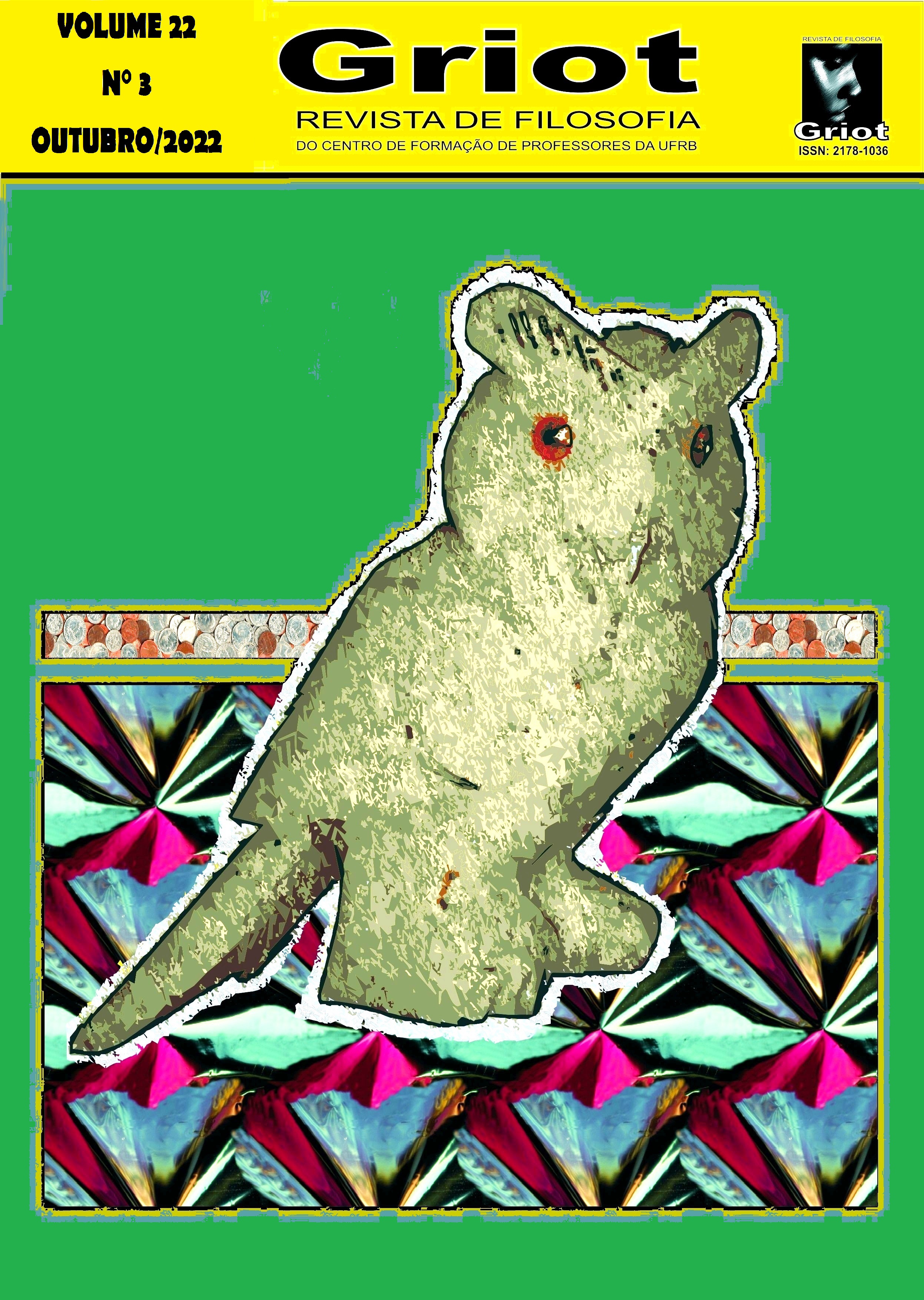Unterschied: on the Heidegger’s critique of the undifferentiated conception of nature
DOI:
https://doi.org/10.31977/grirfi.v22i3.2929Keywords:
Heidegger; Nature; Unterschied.Abstract
The relationship between nature and history is of paramount importance in the development of Heidegger's thought. The philosopher reserved a different way of interrogating nature in relation to the way of interrogating the historical being-there. In fact, the author of Being and Time captured a fundamental aspect with regard to the consequences of the way nature is considered in our time. Considering that Heidegger affirmed that “nature is an entity that meets within the world and that can be discovered, following different paths and degrees”, his indication that the current (hegemonic) conception of nature is characterized by being “undifferentiated” proves to be extremely relevant to the understanding of the topic in focus. In this sense, the present work aims to discuss the Heideggerian critique of the undifferentiated conception of nature from the concept of unterschied and the dialogue with its critics, seeking to explain the philosopher's intention of no longer thinking about the relationship between nature and history separately, but in its unity in the ontological understanding, which would occur each time according to the modalities from which the historical being-there appropriates its having-been, its traditionally inherited possibility-of-existence.
Downloads
References
BARASH, J. A. Heidegger e o seu século – tempo do Ser, tempo da história. Trad. de André do Nascimento. Lisboa: Instituto Piaget, 1997.
GUIGNON, C. Org. Poliedro Heidegger. Trad. de João Carlos Silva. Lisboa: Instituto Piaget, 1993.
HALL, H. Intencionalidade e mundo: divisão I de Ser e tempo. In: Poliedro Heidegger. GUIGNON, C. Org. Trad. de João Carlos Silva. Lisboa: Instituto Piaget, 1993.
HEIDEGGER, M. Introdução à Metafísica. 2 ed. Trad. de Marco Antonio Casanova. São Paulo: Editora WMF Martins Fontes, 2009.
HEIDEGGER, M. Ontologia: hermenêutica da faticidade. 2 ed. Trad. de Renato Kirchner. Petrópolis: Vozes, 2013.
HEIDEGGER, M. Ser e tempo. Trad. de Fausto Castilho. Campinas: Editora da UNICAMP; Petrópolis: Vozes, 2012.
HEIDEGGER, M. Ser e tempo. 9 ed. Trad. de Márcia Schuback. Petrópolis: Vozes, 2014.
HODGE, J. Heidegger e a ética. Trad. de Gonçalo Couceiro Feio. Lisboa: Instituto Piaget, 1995.
LÉVINAS, E. Descobrindo a existência com Husserl e Heidegger. Trad. de Fernanda Oliveira. Lisboa: Instituto Piaget: 1997.
MISSAGGIA, J. Indicação formal como conceito chave para compreender a definição heideggeriana de filosofia. Perspectiva Filosófica, Recife, v. 1, n. 39, p. 82-100, jan./jun. 2013.
Downloads
Published
How to Cite
Issue
Section
License
Copyright (c) 2022 Ricardo Avalone

This work is licensed under a Creative Commons Attribution 4.0 International License.
The authors who publish in Griot: Revista de Filosofia maintain the copyright and grant the magazine the right of first publication, with the work simultaneously licensed under the Creative Commons Attribution 4.0 International License, allowing sharing and adaptation, even for commercial purposes, with due recognition of authorship and initial publication in this journal. Read more...









































































